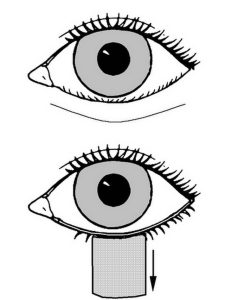 I’m weirdly fascinated by medical neep. This goes back, probably, to having my tonsils out when I was 5 (I was so excited that I fought off the pre-op sedative, to the point where they had to take me down to surgery and pipe ether into me, because I wanted to see everything that was happening). I discovered medical non-fiction–the terrific “Annals of Medicine” series by New Yorker essayist Berton Roueché–when I was in middle school, and I’m always looking for non-fiction work about medical history. I love Lisa Sanders Diagnosis column for the Sunday NY Times Magazine. When I used to watch House M.D., I would be collecting symptoms and yelling my diagnoses at the screen. I gobbled down John M. Barry’s The Great Influenza pre-pandemic (and went back and read it again in the early days of COVID, and found much useful information in terms of staying healthy when everyone around you is dropping like flies).
I’m weirdly fascinated by medical neep. This goes back, probably, to having my tonsils out when I was 5 (I was so excited that I fought off the pre-op sedative, to the point where they had to take me down to surgery and pipe ether into me, because I wanted to see everything that was happening). I discovered medical non-fiction–the terrific “Annals of Medicine” series by New Yorker essayist Berton Roueché–when I was in middle school, and I’m always looking for non-fiction work about medical history. I love Lisa Sanders Diagnosis column for the Sunday NY Times Magazine. When I used to watch House M.D., I would be collecting symptoms and yelling my diagnoses at the screen. I gobbled down John M. Barry’s The Great Influenza pre-pandemic (and went back and read it again in the early days of COVID, and found much useful information in terms of staying healthy when everyone around you is dropping like flies).
I must add that this fascination never moved me in the direction of becoming a doctor.
Too much math and chemistry, at both of which I do not excel. But an overview of the human body and all the ways in which it can get screwed up fascinated me. It informed my decision to set Sold for Endless Rue at the medical school at Salerno in the 13th century.
And every time I have a medical procedure–from donating blood or platelets, to getting my broken arm repaired–I ask questions (and continually marvel that there are whole sectors of industry devoted to creating, say, the right sized needle for a blood donation vs. the little spring-activated punches that draw one drop for testing prior to the event). I ask questions. I’m probably a little annoying–unless I get a tech or a doctor who’s as fascinated by this stuff as I am. Which does happen.
I’m thinking about this because next week I have eyelid surgery. I have a condition called entropion, which simply means that the lower lid of my right eye keeps turning inward, allowing my eyelashes to scrape the surface of my eye. In the great pile of medical woes to which the flesh is heir, this is laughably minor, and yet… on a day when it’s bad (it comes and goes) my right eye tears constantly. Wearing a mask, as I do on public transit and public spaces, exacerbates the problem by pushing my cheek, and thus my eyelid, more firmly upward toward my eye. It’s a pain in the ass, and finally in May I called my eye doctor and asked for a referral to someone who could do something about it. I was referred to an occulo-facial plastic surgeon–don’t think that didn’t give me a frisson of feminist distaste–and the process of fixing my eyelid began.
It has, even before the surgery, entailed a cat scan (it appears that my right eye is set 1-2 millimeters forward of my left, and the doctor wanted to make sure there wasn’t a tumor or some other problem pushing the eye outward), and will require an EKG and pre-op clearance physical, all to make sure that I don’t explode on the table. The procedure itself will be done under a local anesthetic and supposedly take about half an hour to 40 minutes to complete. As my doc explained it to me, she’ll make a long incision parallel to the eyelid, grab the slack, saggy muscle that is supposed to keep my lid in its proper outward position, and pull it down to shorten and tighten it.
There will be stitches. While I heal I will likely be spectacularly bruised. And there will be new medical apparati to ogle, and new questions to ask. And I am mildly excited about the whole thing. If I’m awake, will I be able to see what’s going on? I have mixed feelings about that, but I’m also curious about how they will block my vision during the surgery (if indeed they do so). I’ve been told I can bring music or a podcast to listen to–very civilized.
I wrote a whole book about medieval medical understanding and procedures. I wonder what the heroine of Rue, who lives in a time when splinting a fractured leg (rather than bending the leg at the knee and strapping the tibia to the femur to stabilize it) was a breathtaking medical advance, would think about the processes of micro-surgery and dissolving stitches. I think it’s cool.
